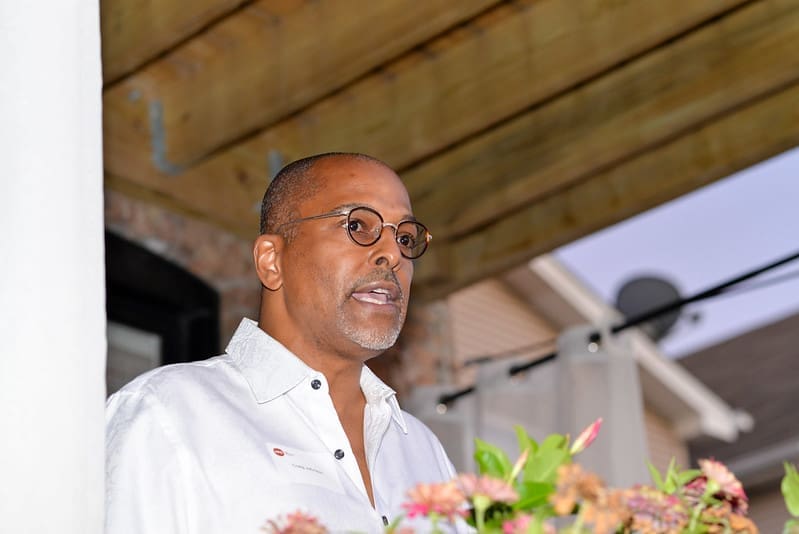Media contact: Edward Wagner FOR IMMEDIATE RELEASE
Tel. 312-334-0922
Email: [email protected]
Governor Quinn’s Budget Supports Vital HIV/AIDS Services
AFC Applauds Governor Quinn’s Proposed Budget
SPRINGFIELD –Illinois Governor Pat Quinn proposed a $34.4 billion state budget on Wednesday, March 26 that would continue current funding HIV/AIDS services at $25 million for state fiscal year (FY) 2015.
“We applaud Governor Quinn’s budget decision to allocate $25 million for HIV/AIDS services as a targeted investment that will help lower the burden and cost of HIV in Illinois. The Governor’s budget makes the right choices for generations to come,” said John Peller, Interim President/CEO of the AIDS Foundation of Chicago.
Governor Quinn’s proposed funding amount relies on the extension of the state income tax increase that was enacted in 2011. If the income tax increase is not extended by the General Assembly, HIV funding will be cut by $4 million, a 14% cut from FY 14, according to the Governor’s projection. This potential $4 million cut would amount to a 30% funding cut to HIV/AIDS services since FY 11, when total funding was $30.88 million. Governor Quinn has proposed extending the tax increase, which will help sustain critical HIV/AIDS services.
“The AIDS Foundation of Chicago calls on the General Assembly to act immediately to identify increased revenue for the state,” continued Peller. “The Governor’s proposal to extend the state income tax increase is one of several proposals that would stabilize funding for public health and social services that help vulnerable populations, including people with HIV. A $4 million decrease to HIV/AIDS funding would result in unacceptable cuts to services that affect people with HIV and at risk of HIV.”
AFC is a member of the A Better Illinois coalition, which is proposing a graduated income tax, also called a “Fair Tax”, as a revenue solution. A Fair Tax would cut income taxes for 94% of Illinoisans, while increasing the amount the wealthiest residents would have to pay.
The $25 million recommended by the Governor for the state’s largest HIV funding line would continue to support HIV housing, prevention, supportive service, and health care programs for people with HIV. This funding also supports the AIDS Drug Assistance Program (ADAP), which provides life-saving medication to people with HIV.
While many people with HIV have and will continue to gain new health insurance coverage through the Affordable Care Act (ACA), many current ADAP clients are transitioning slowly to those new programs, despite continuous enrollment efforts by case managers, providers and community members. According to an Illinois Department of Public Health (IDPH) budget briefing, a little more than 25% of clients have moved to new health care reform programs, leaving an estimated 5,400 relying on ADAP for access to health coverage.
“The ACA provides partial relief to ADAP, but as predicted it will take time for people living with HIV to transition to new coverage. If HIV/AIDS services continue to be funded at $25 million, we are confident that ADAP will have adequate support to ensure that people with HIV can switch to new programs without interrupting their health care services.” said Lucy Baglin, Policy Coordinator, AIDS Foundation of Chicago.
In addition to supporting clients as they transition, ADAP continues to remain as crucial as ever for people with HIV, offering wrap-around services that cover gaps in Medicaid health coverage and subsidizing Market place plans to make them affordable.
AFC’s health insurance marketplace drug coverage guide shows that without help from ADAP many people with HIV would be unable to obtain life-saving medications. While two insurance companies have affordable medication co-pays, the remaining four companies feature out-of-pocket costs of as much as $2,000 a month for an HIV medication regimen. ADAP can help people with HIV by covering these out-of-pocket costs.
“HIV is a communicable disease,” continued Peller. “The scientific evidence is clear that when people with HIV receive clinical care, treatment, and other essential services, the risk for further HIV transmission is substantially decreased,” said Peller.
Budget cuts would also reduce support for vital HIV prevention programs. Every HIV case prevented averts at least $380,000 in lifetime medical care costs for someone with HIV. The state would pay much of that cost.
HIV/AIDS advocates are encouraged to join AFC in Springfield to advocate for critical HIV/AIDS issues on Wednesday, April 9 and Wednesday, May 14, 2014. Contact Lucy Baglin at [email protected] for more information or visit www.aidschicago.org/HIVad.
Stay tuned for additional information and action alerts on the state budget.
Resources:
Governor Quinn’s full FY15 state budget proposal
FY15 Department of Public Health budget section
####
Founded in 1985 by community activists and physicians, the AIDS Foundation of Chicago is a catalyst for local, national, and international action against HIV/AIDS.

